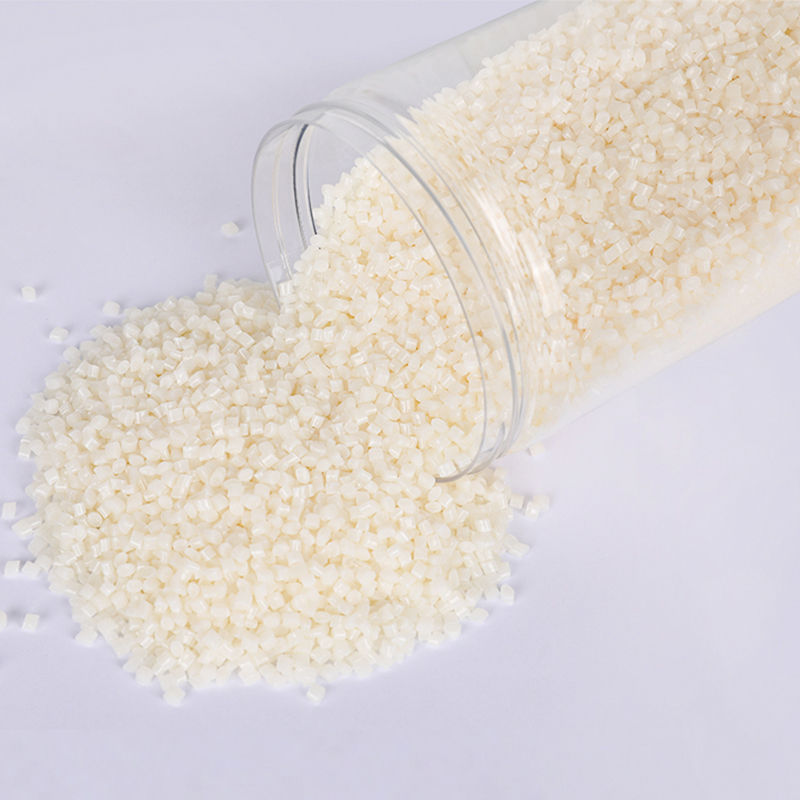Stay up to date with our recent products
Web Menu
Product Search
Exit Menu
Are there any differences in the thermal properties of RABS compared to virgin ABS?
In the realm of plastic engineering, Acrylonitrile-Butadiene-Styrene (ABS) stands out as a widely used thermoplastic known for its versatility and robustness. However, with increasing environmental concerns, the demand for sustainable alternatives has led to the rise of Recycled ABS Plastic (RABS).
Understanding RABS and Virgin ABS
Before delving into the thermal properties, it's crucial to grasp the fundamentals of RABS and virgin ABS. Virgin ABS is synthesized from acrylonitrile, butadiene, and styrene, offering a blend of impact resistance, heat resistance, and processability. On the other hand, RABS is derived from recycled ABS material, encompassing post-consumer or post-industrial waste. The recycling process involves heating, melting, and reforming the plastic to create a new material, albeit with potential variations in composition and properties.

Thermal Stability and Degradation
One of the primary considerations in comparing RABS and virgin ABS is thermal stability. Throughout the recycling process, ABS undergoes multiple heating and cooling cycles, which can induce thermal degradation. This degradation, attributed to factors such as exposure to high temperatures and oxidative reactions, may alter the molecular structure and influence the overall thermal stability of RABS. Consequently, differences in thermal stability between RABS and virgin ABS may arise, impacting their performance in various applications.
Melting Point Variations
The melting point serves as a crucial indicator of a material's thermal behavior. In the case of RABS, variations in the composition and processing conditions of the recycled material can influence its melting point compared to virgin ABS. While RABS typically retains the general characteristics of ABS, including a milky white or light yellow appearance, the presence of impurities or degradation products from the recycling process may lead to slight deviations in the melting point. Thus, understanding these variations becomes imperative for applications where precise thermal properties are critical.
Heat Deflection Temperature (HDT)
The Heat Deflection Temperature (HDT) is another vital parameter that dictates a material's resistance to deformation under load at elevated temperatures. Differences in the HDT between RABS and virgin ABS may arise due to variations in material composition and structural integrity. The presence of impurities or degradation byproducts in RABS could potentially lower its HDT compared to virgin ABS, impacting its suitability for applications requiring high-temperature resistance.
Thermal Conductivity and Coefficient of Thermal Expansion (CTE)
Thermal conductivity and the Coefficient of Thermal Expansion (CTE) are essential factors influencing a material's response to temperature changes. Variations in composition and morphology between RABS and virgin ABS can lead to differences in thermal conductivity and CTE. While RABS generally retains the thermal properties of ABS, the presence of impurities or filler materials may alter these characteristics. Consequently, manufacturers and engineers must assess the thermal conductivity and CTE of Recycled ABS Plastic to ensure its compatibility with specific applications.
As China PCR Recycled Plastic Granules Factory, We always adhere to the experience and philosophy of "keeping up with the times, constantly innovating, developing efficiently, and cooperating for mutual benefit"

Address: No.11, Wangzhuang Section, Provincial Road 01, Daqiao New Area, Economic Development Zone, Haiyan County, Jiaxing City, Zhejiang Province, China
Phone: +86-18058285678
Fax: +86-0573-86868101
E-mail: [email protected]
SUNRISE GROUP(Overseas Exclusive Agent)
www.sunrisechemical.com
2024 ICIS Global Chemical Distributor Top 8
Export Sales Manager:Helen Zhang
Mob/Whatsapp: +86 19883063465
Email: [email protected]
Copyright © Jiaxing Anyiju Plastic Industry Co., Ltd. All Rights Reserved

 简体中文
简体中文 English
English







